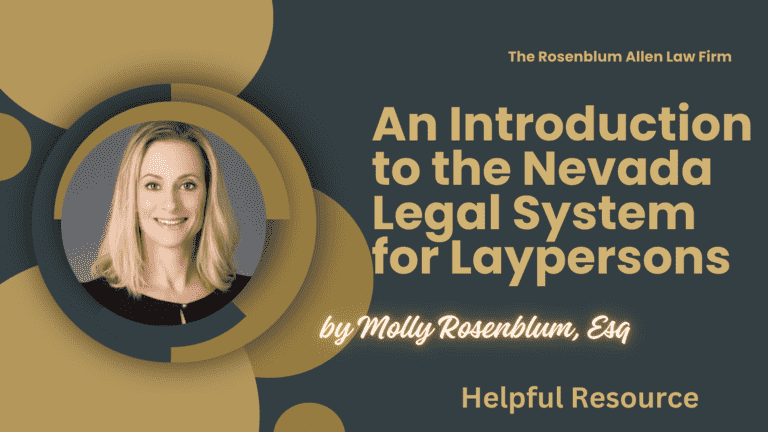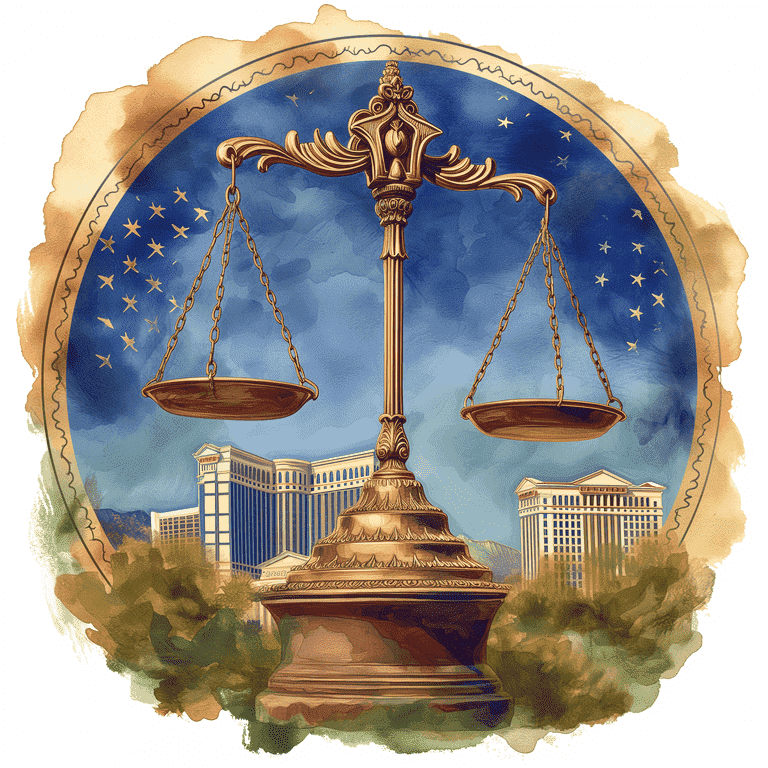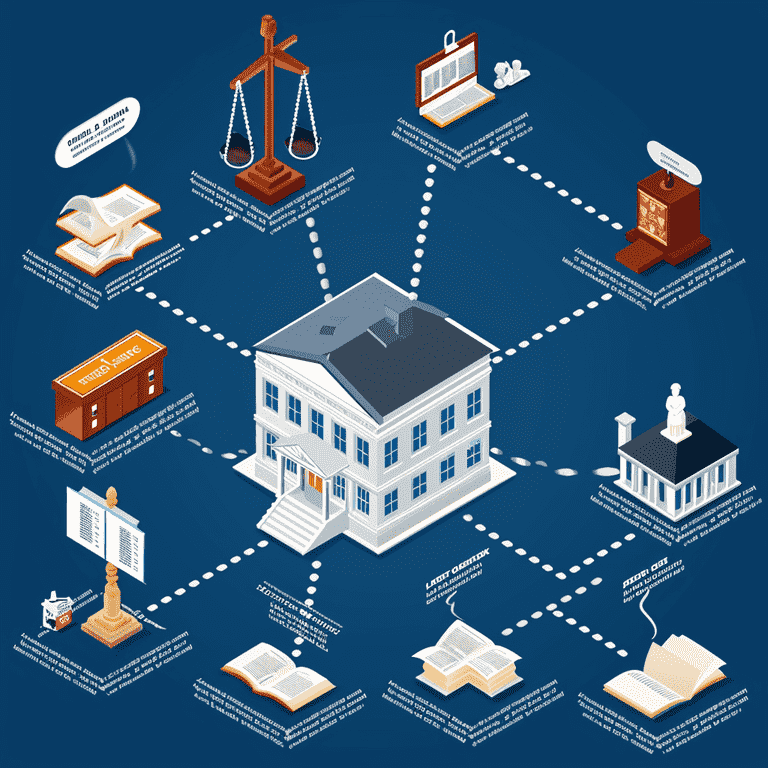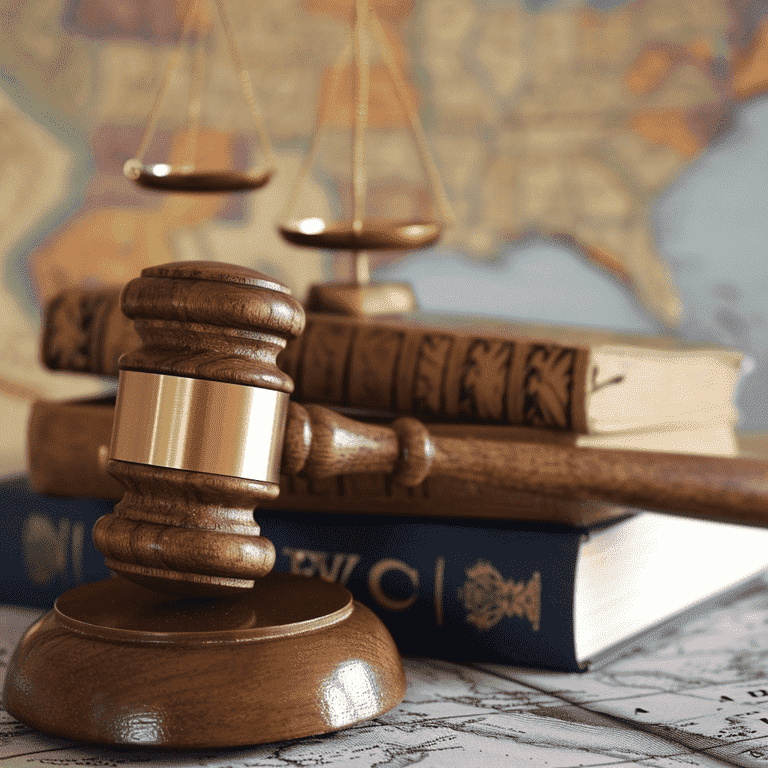Nevada’s legal landscape can be complex and intimidating. This is especially true if you are a defendant in a legal case. Understanding the intricacies of the Nevada legal system is crucial.
It helps you navigate your rights and responsibilities. This guide aims to demystify the process.
It provides clear, accessible information to help you through this challenging time.

Understanding the Nevada Court Structure
The Nevada Judiciary System
Supreme Court of Nevada
Role: The apex of the Nevada judicial system, handling appeals and significant legal questions.
Jurisdiction: Reviews decisions from lower courts, oversees legal procedures, and administers rules governing Nevada’s legal practice.
District Courts
General Jurisdiction: Handles various cases, including criminal, civil, family, and juvenile matters.
Types of Cases: These include serious criminal offenses, significant civil disputes, family law cases, and more.
Justice Courts and Municipal Courts
Limited Jurisdiction: Focuses on less severe matters compared to district courts.
Justice Courts: Deal with minor civil cases, misdemeanors, traffic matters, and initial hearings for more serious crimes.
Municipal Courts: Primarily handle city ordinance violations and minor misdemeanors.

Your Rights as a Defendant in Nevada
The Right to Legal Representation
Hiring a Defense Attorney vs. Public Defender: Understanding your options for legal representation.
Factors to Consider: The complexity of your case, financial situation, and the advantages of specialized legal knowledge.
The Right to a Fair Trial
Steps in a Criminal Trial Process in Nevada:
Pre-Trial Motions and Hearings: Address legal issues before the trial begins.
Jury Selection and Trial Proceedings: The selection of an impartial jury and the formal presentation of evidence and arguments.
Sentencing and Appeals: The conclusion of the trial and potential next steps if an appeal is necessary.
Presumption of Innocence
Burden of Proof and Evidentiary Standards: Understanding the prosecution’s obligation to prove your guilt beyond a reasonable doubt.

The Criminal Process Explained
Arrest and Charges
What to Expect During an Arrest:
Your Rights: Including the right to remain silent and the right to an attorney.
Procedure: The process of being taken into custody, booked, and informed of charges.
Arraignment and Plea Bargaining
The arraignment process involves a formal reading of charges. You also have the opportunity to enter a plea.
The Role of Plea Bargains: How and why plea bargains are used in Nevada’s legal system.
Pre-Trial Procedures
Discovery Process and Preparing for Trial:
Gather evidence and prepare to present your case in court.
This guide section aims to provide a foundational understanding of the Nevada legal system. It will cover your defendant rights and the initial steps of the criminal process. Stay informed and prepared, as knowledge is critical to navigating legal challenges.

Navigating Nevada’s Unique Laws
State-Specific Criminal Laws
Nevada’s legal landscape has its own set of rules and regulations. Understanding these can help you better navigate your case.
Understanding Nevada’s Unique Legal Provisions
- Nevada-Specific Offenses: Certain crimes are uniquely defined or prioritized in Nevada.
- Comparison with Other States: How Nevada’s laws differ from neighboring states and federal law.
Drug and Gambling Laws
Nevada’s laws on drugs and gambling can be intricate due to the state’s unique stance on these issues.
Special Considerations in Nevada
- Drug Laws: Understanding the nuances of Nevada’s drug regulations.
- Gambling Laws: How gambling offenses are treated differently in Nevada.

Resources and Support for Defendants
Legal Aid and Support Services
Navigating the legal system can be daunting, but resources are available to help.
Accessing Public Legal Resources in Nevada
- Legal Aid Organizations: List of organizations offering legal assistance.
- Pro Bono Services: Information on free legal services for qualifying individuals.
Preparing for Your Defense
Working closely with your legal team is essential for a strong defense.
Working with Your Attorney
- Effective Communication: How to share information and work together effectively.
- Expectations and Strategy: Understanding your attorney’s role and how they can best represent you.
Gathering Evidence and Building a Strong Case
- Documentation and Evidence: Tips on what to gather and how to organize it.
- Witnesses and Expert Testimony: Leveraging testimonies to strengthen your case.
Why You Have Not Hired a Felony Defense Attorney Yet
Watch this short video to take the next big step toward defending your rights against a felony charge.

Breaking It All Down for You
Being well-informed and prepared is crucial in navigating the legal system. Remember, understanding your rights and the nuances of Nevada law can significantly impact the outcome of your case. Stay engaged. Ask questions. Make informed decisions as you work through your legal journey.

Frequently Asked Questions
What Happens if I Can’t Afford a Lawyer?
If you’re unable to afford a lawyer, the court will appoint a public defender to represent you. The U.S. Constitution guarantees this right. It ensures everyone has access to legal representation.
Can I Change My Lawyer If I’m Not Satisfied?
Yes, you have the right to change your lawyer. You can do this if you’re dissatisfied with their representation. It is essential to communicate your concerns with your current lawyer. Consider the timing and implications of making a change.
How Long Can a Criminal Case Last in Nevada?
The duration of a criminal case in Nevada varies widely. It depends on the case’s complexity, the court’s schedule, and delays like continuances or appeals.
Are Jury Trials Common in Nevada Criminal Cases?
Jury trials are common for severe criminal cases in Nevada. However, many cases are resolved through plea bargains or bench trials (trials by judge without a jury).
What Should I Do If I Feel My Rights Have Been Violated?
If you believe your rights have been violated at any point during the legal process, inform your attorney immediately. They can address the violation and, if necessary, bring it to the court’s attention.
Can I Appeal a Guilty Verdict in Nevada?
If you are convicted, you have the right to appeal the verdict. An appeal must be based on grounds such as legal error, newly discovered evidence, or procedural issues.
What’s the Difference Between a Misdemeanor and a Felony in Nevada?
Misdemeanors are less severe crimes typically punishable by fines or jail time of up to 6 months. Felonies are more serious, often resulting in more than a year of prison sentences.
How Does Bail Work in Nevada?
Bail is a set amount of money you can pay to be released from jail while awaiting trial. The amount depends on the crime’s severity and your perceived flight risk. Sometimes, you might be released on your own recognizance without paying bail.
What Are the Potential Consequences of a Criminal Conviction in Nevada?
Consequences include jail or prison time, fines, probation, community service, and a criminal record. A criminal record can impact future employment and housing opportunities.
Is It Possible to Have a Criminal Record Sealed or Expunged in Nevada?
Nevada law allows for sealing criminal records in certain circumstances. However, expungement (complete erasure) is not typically available. The eligibility for sealing depends on the type of crime and how much time has passed since the case was closed.

Glossary
Arraignment: The first court appearance where a defendant hears the charges against them and enters a plea (guilty, not guilty, or no contest).
Bail: Money paid to the court to ensure that an arrested person will return for their scheduled court appearances. Bail can be refunded if the individual complies with all court requirements.
Bench Trial: A trial without a jury, where the judge serves as the fact-finder and decides the case.
Burden of Proof: The obligation of a party in a trial to prove their allegations. In criminal cases, the prosecution carries the burden of proof.
Continuance: A postponement or delay in a court case or hearing.
Criminal Record: A record maintained by law enforcement agencies listing a person’s criminal history.
Defendant: An individual or entity accused of a crime in a court of law.
Discovery: The pre-trial process where each party obtains evidence from the opposing party.
Expungement: The process of legally destroying, obliterating, or striking out records or information in files, computers, and other depositories relating to criminal charges. Note: In Nevada, this is more commonly called “sealing.”
Felony: A serious crime, typically involving violence, and punishable by imprisonment for more than one year or death.
Jury Trial: A trial where a jury makes decisions or findings of fact, which then direct the actions of a judge.
Misdemeanor: A lesser criminal act generally punishable by fines or shorter jail terms.
Plea Bargain: An agreement in a criminal case where the defendant agrees to plead guilty to a particular charge in return for some concession from the prosecutor.
Public Defender: A lawyer appointed by the court to represent defendants who cannot afford an attorney.
Sealing of Records: The process of concealing criminal conviction records from public view. In Nevada, this does not entirely erase the record but makes it invisible to most searches.
Supreme Court of Nevada: The highest court in the Nevada judiciary system, primarily serving an appellate function.
Verdict: The decision of a jury or a judge on the matters submitted to the court in a trial.
Additional Resources for You

Our lead attorney, Molly Rosenblum Allen, Esq., is not only committed to providing top-notch legal representation but has also created a wealth of resources to assist you in understanding the complexities of the legal system. These resources are designed to guide you through various legal scenarios and provide in-depth insights into key legal concepts. Here are some of the resources available:
Double Jeopardy: Explore the nuances of Double Jeopardy, where individuals are protected from being tried twice for the same crime under certain conditions. Learn more.
Hung Jury: Understand what happens when a jury cannot reach a unanimous decision, leading to a hung jury, and what implications this has for a legal case. Learn more.
Circumstantial Evidence: Delve into the realm of circumstantial evidence, understanding how indirect evidence can be used to infer a conclusion about a fact in question. Learn more.
Indicted vs Charged: Gain clarity on the difference between being indicted and being charged, and how these legal processes impact the accused. Learn more.
Difference Between Jail and Prison: Learn the key differences between jail and prison, understanding the distinct nature of short-term and long-term incarcerations. Learn more.
What are Miranda Rights: Familiarize yourself with Miranda Rights, a fundamental aspect of the criminal process that protects the rights of the accused during police interrogations. Learn more.
How to Check if You Have an Outstanding Warrant: Navigate the steps to determine if there is an outstanding warrant against you, ensuring you can take appropriate legal action. Learn more.
What to Look for in a Criminal Defense Lawyer: Equip yourself with the knowledge to choose the right criminal defense lawyer, understanding the key qualities and qualifications that matter. Learn more.
Possible Ways to Reduce a Felony Charge: Explore strategies and legal avenues that may potentially reduce the severity of a felony charge. Learn more.
Should You Accept a Plea Bargain: Consider the factors involved in deciding whether accepting a plea bargain is in your best interest, understanding the pros and cons of such a decision. Learn more.
These resources are meticulously crafted to help you navigate through your legal journey, ensuring you’re well-informed at every step. Feel free to explore these links for detailed insights and guidance.

Offsite Resources You May Find Helpful
Here are several offsite resources that are related to the content and may be useful for readers seeking additional information:
American Bar Association (ABA): A comprehensive resource offering extensive legal information, including guides on various aspects of the law. Visit the ABA
FindLaw: This site provides a wealth of legal resources, including articles and information on a wide range of legal topics. Visit FindLaw
National Association of Criminal Defense Lawyers (NACDL): An organization that offers resources and support for criminal defense attorneys, as well as educational materials on criminal defense law. Visit NACDL
Justia: Offers a vast library of legal information and resources, including case law and statutes. Visit Justia
NOLO: Known for its easy-to-understand legal articles, NOLO provides a range of resources for those seeking legal information. Visit NOLO
State Bar of Nevada: The official site of the Nevada bar association, offering resources for the public and legal professionals, including information on Nevada’s legal system. Visit the State Bar of Nevada
These websites offer a range of information that can be helpful for individuals looking to understand more about legal processes, especially in the context of the Nevada legal system.

A Special Message From Our Lead Attorney
Why You Might Need a Lawyer

Molly Rosenblum, Esq
Dear Reader,
Thank you for taking the time to explore the resources we have compiled for you. I hope you found them informative. They are helpful in understanding the complexities of the Nevada legal system. At The Rosenblum Allen Law Firm, we are committed to providing you with the guidance and support you need during challenging legal times.
If you have any questions or need further help, I invite you to schedule a free consultation. Please feel free to call us at (702) 433-2889, and we will be more than happy to discuss your situation and how we can help.
Remember, you don’t have to navigate this journey alone. We are here to stand by your side and provide the legal expertise you need.
Sincerely,
Molly Rosenblum, Esq.


